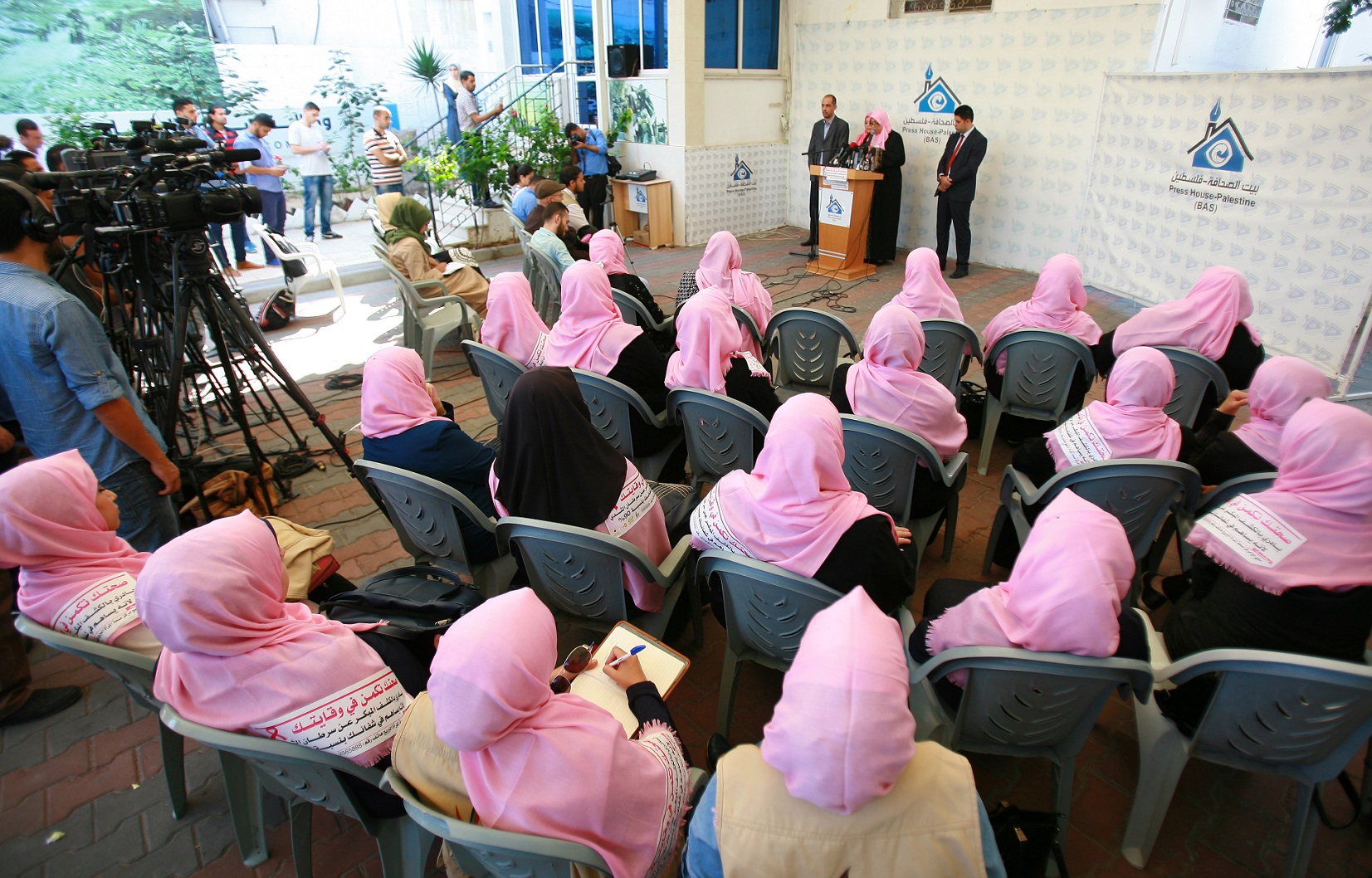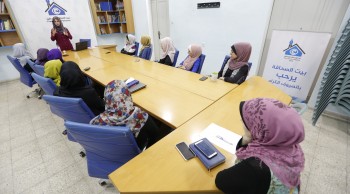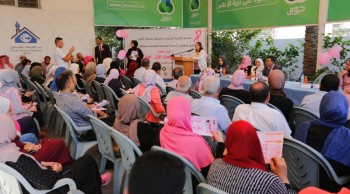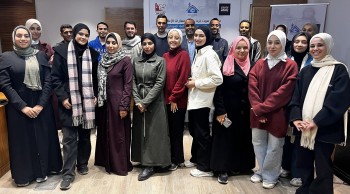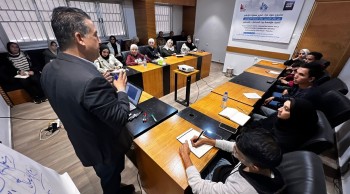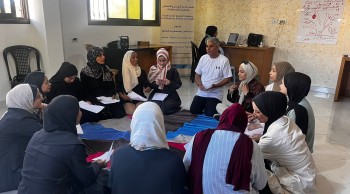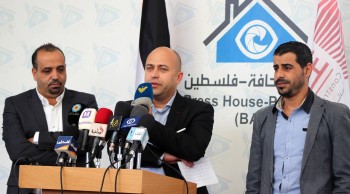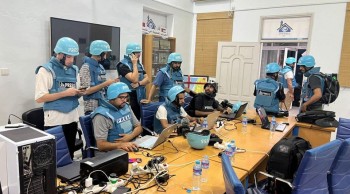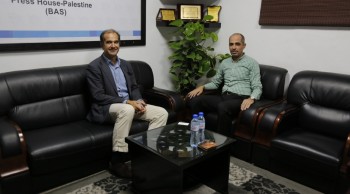10/10 --- Women with breast cancer in the Gaza Strip have appealed the Palestinian governments, bodies, and international organizations to accelerate the process of offering them medicine and facilitating the medical transforms of travel, so that they could travel for treatment.
During a press conference titled" Call For Help" and in a statement for Nawal Sallom, a patient of breast cancer, she said," the hospitals of the Gaza Strip lack predisposition for cancer treatment; and most importantly lack of radiotherapy and acute shortage of medical devices that detect breast cancer. Worth noting that the Gaza strip only has 4 Mammograms devices.
She noted that the lack of medication exposes the patients to danger. Added to this, many troubles negatively affect the health conditions of them like stopping many treatment protocols for a long time, rejections and delay in treatment transfers to abroad, as well as the suffering of movement under the lack of devices.
She stressed on their right to living and getting the best cure, where she considered the deprivation of travel a collective punishment and a clear break to Geneva conventions in which article(33) states: " No protected person may be punished for an offense he or she has not personally committed. Collective penalties and likewise all measures of intimidation or of terrorism are prohibited"
She called the international community to hold the human , moral and legal responsibility towards taking immediate procedures to limit the violations of the international law committed by Israel against the Palestinian civilians specifically the patients. She also appeals to end the siege which is the second face of the collective punishment.
She said that the holders of the political division hold the responsibility of deterioration of the patients' health conditions through giving the occupation and other execute states space to extend the siege and closure of Rafah borders, asking all the Islamic and national bodies to work on eliminate the division, so we could internationally and locally face the occupation upon international rules and procedures.
She indicates that the reports and statics documented by the National Center For Tumor Monitor/ medical information data unit of the Gaza Strip state that the registered number of cancer breast cases is 1283 with a percentage of 18% out of the total number, while the prevalence rate is 78 women to 100,000 women in Gaza out of the total population with a percentage of 31.3% out of female patients.
She showed that breast cancer is ranked the first among cancer of death for the females in Palestine, with a percentage of 24.4% of those deaths. In 2014, the ministry of Health registered 260 breast cancer cases, where 69 passed away.
She said:" in 2015, 748 of breast cancer cases proposed for travel permits to the hospital of Jerusalem and west bank, clarifying that 293 got belated permits and 74 were rejected for security reasons by Israel, where other proposals of 219 were ignored.
She continued; " in 2016, 548 of breast cancer cases proposed to get transform papers to get treatment at the hospital of Jerusalem and west bank, adding that 287 didn't get approval, and 125 women were rejected for security reason by Israel.
In her turn, Feryal Thabet, the head of woman Health center thanked Press House for giving them an opportunity to deliver the message of these women of breast cancer. During her speech, she asked to offer the simplest human rights for women in the Gaza Strip, the place where there is nothing for cancer treatment and the patients are subjected to punishment on borders especially Eriz.
Thabet added: "after the patients receive chemotherapy sessions, they miss the power to travel or go on their treatment and travel abroad." She also said that the occupation holds the full responsibility of the health conditions of these women, since radiation therapy is not available in the Gaza strip, and the occupation deprives them from the right to living.
Thabet asked to afford protection for the national dignity of breast cancer patients, and to give them the right to traveling through Rafah border or Eriz.
In his turn, Samir Al-Mana'ma, lawyer for Al-Mezan center for Human Rights, said that preventing breast cancer patients is a violation to the international humanitarian law which ensures the right of people to traveling and movement. He indicated that the occupation intended to temporize in giving responses to the proposals of these patients.
He confirmed that preventing these women from accessing the hospitals is nothing but a crime that must be stopped to facilitate travel process.
Al-Man'ma noted that the Gaza Strip suffers the lack of medication for people with cancer, and shortage of medical devices. He called the international community to set a specific committee to prevent women from suffering and Israel from temporizing in response of the proposals.
Al-Mana'ma explained that the authority and holders of political division hold a part of this responsibility, since the political division elimination contributes to facilitating the travel of the patients. He also confirmed that Al-Mezan center for human rights has a legal assistance unit that defends the rights of patients including a right to accessing hospitals.

